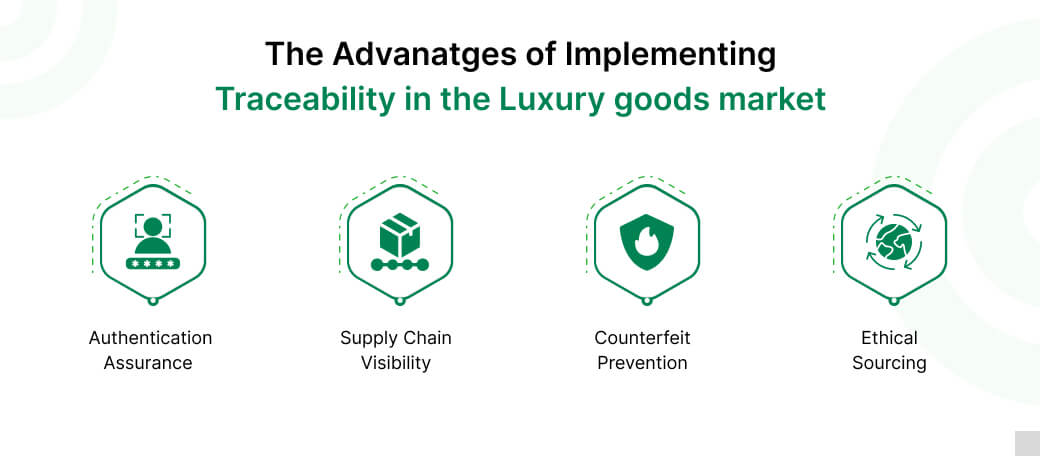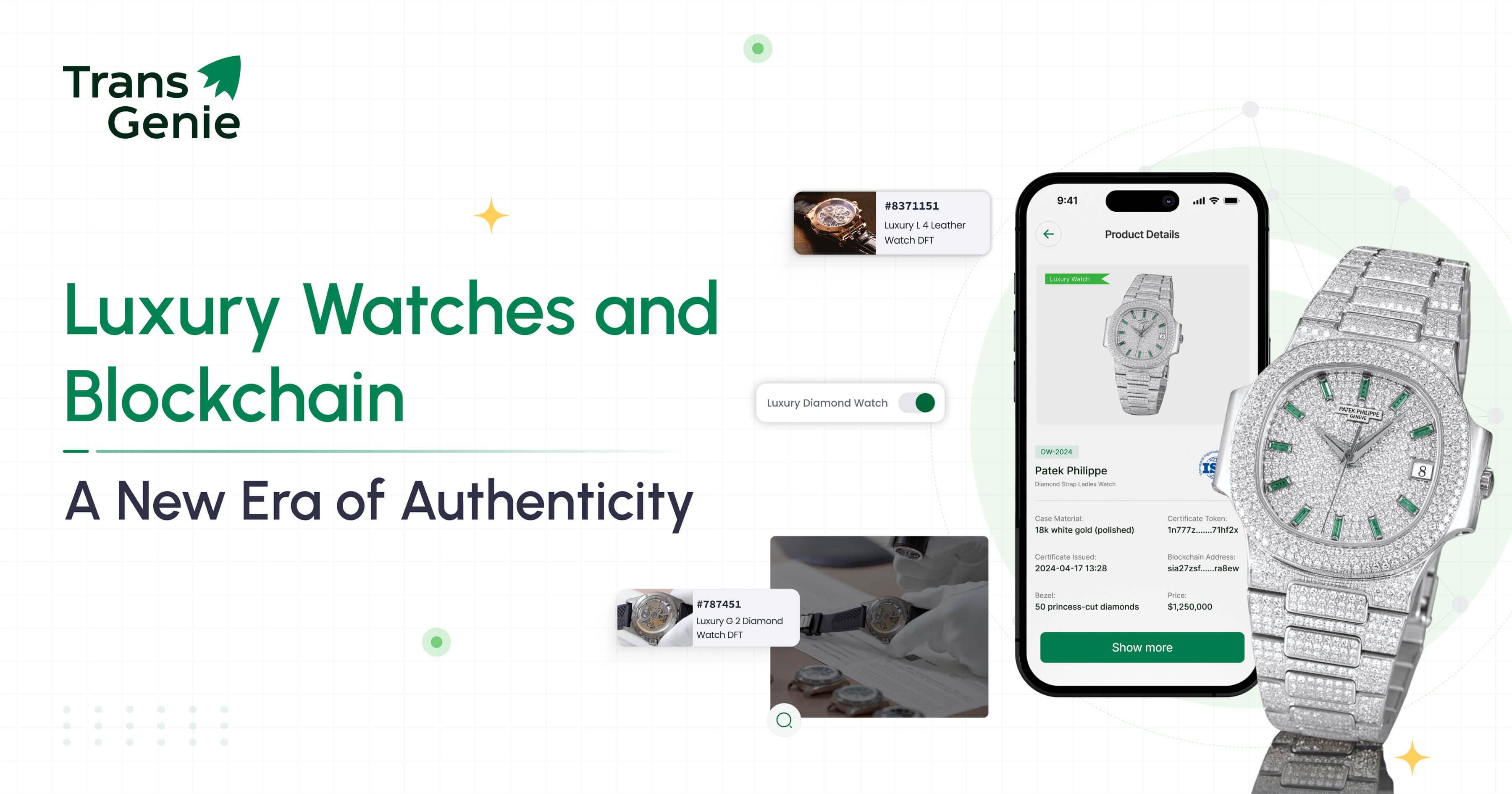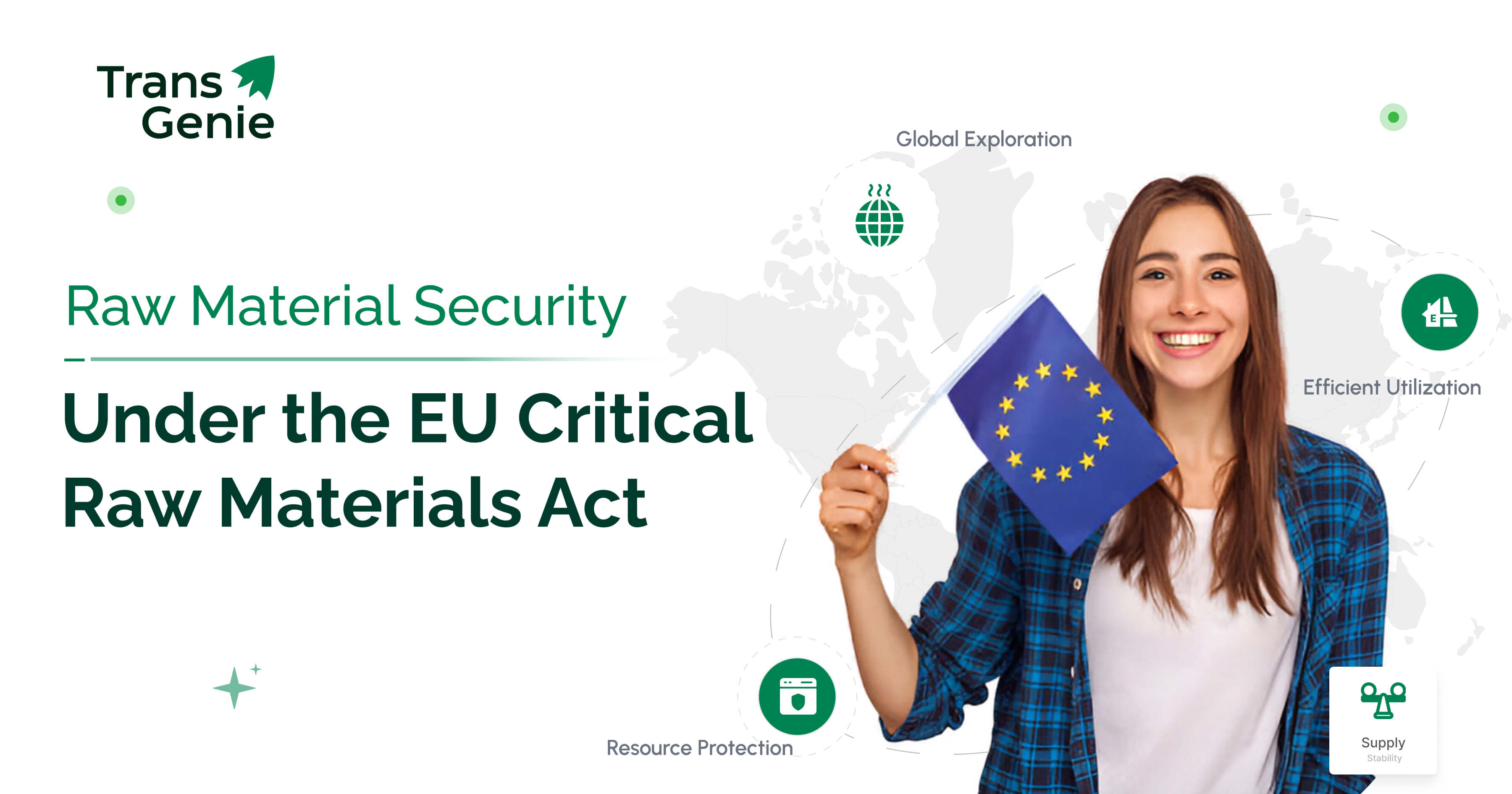In the dynamic landscape of the luxury goods market, traceability emerges as a pivotal factor, safeguarding authenticity and quality. As consumers increasingly seek transparency in their purchases, the demand for traceability becomes imperative. This blog explores the vital role of traceability in luxury goods, focusing on how it not only ensures the integrity of products but also fosters consumer trust. From artisanal craftsmanship to sustainable sourcing, product traceability solutions navigate the intricate journey of luxury items, providing a narrative that resonates with conscientious consumers. Join us on this exploration of why traceability is not just a trend but a fundamental necessity in the realm of luxury goods.
The Importance of Traceability in the Luxury Goods
Traceability plays a pivotal role in safeguarding the integrity of luxury goods. In an industry where counterfeiting and fraud are prevalent, traceability enables brands and consumers to verify the authenticity of products, thereby protecting against counterfeit goods entering the market. Moreover, traceability helps in upholding brand reputation and trust by ensuring that products meet the highest standards of quality and craftsmanship.
The Advantages of Implementing Traceability in the Luxury Goods Market

Authentication Assurance
Implementing blockchain traceability in the production of luxury goods ensures authentication assurance, providing a foolproof method to verify the genuineness of each product. By documenting and tracking every stage of the manufacturing process, from the acquisition of raw materials to the final product, brands can offer consumers a guarantee of authenticity. This not only protects the brand's integrity but also cultivates trust among those who seek assurance that they are investing in a genuine, high-quality luxury item.
Supply Chain Visibility
Traceability offers invaluable supply chain visibility, enabling luxury brands to monitor and manage their production processes with precision. From the sourcing of rare materials to the intricacies of craftsmanship, brands can gain real-time insights into their supply chain. This transparency enhances operational efficiency, reduces the risk of disruptions, and ensures a seamless flow of goods. It also allows brands to identify potential bottlenecks, optimize processes, and maintain the quality standards synonymous with luxury, ultimately enhancing overall supply chain performance.
Counterfeit Prevention
One of the most significant advantages of the traceability market is its ability to prevent counterfeit products. Luxury brands are particularly vulnerable to imitation, and counterfeit goods not only harm brand value but also deceive consumers. By implementing robust traceability systems, brands can create a digital fingerprint for each product, making it challenging for counterfeiters to replicate. This not only protects the brand's intellectual property but also safeguards consumers from unknowingly purchasing fake items, preserving the exclusivity and authenticity that defines the luxury experience.
Ethical Sourcing
Traceability is a powerful tool for promoting ethical sourcing practices within the luxury industry. By documenting the origins of materials and ensuring they meet ethical standards, brands can showcase a commitment to sustainability and responsible business practices. Consumers are increasingly concerned about the environmental and social impact of their purchases, making ethical sourcing a key differentiator. Traceability allows brands to communicate their dedication to fair labor practices, environmentally friendly sourcing, and overall corporate responsibility. This not only aligns with consumer values but also enhances the brand's reputation and fosters a positive relationship with socially conscious consumers.
Technological Innovations Driving Traceability
Realizing the vision of traceability in the luxury goods market requires a strategic integration of advanced technologies and collaborative efforts across the supply chain. Several solutions have proven effective in achieving comprehensive traceability:

1. Blockchain Technology
Embracing blockchain technology ensures an immutable and decentralized ledger, providing a secure and transparent record of every transaction within the supply chain. This tamper-resistant system becomes a digital passport for luxury goods, allowing consumers to effortlessly verify the authenticity and journey of their purchases.
2. RFID Tags and NFC Technology
RFID Tags and NFC Technology: Radio-frequency identification (RFID) tags and near-field communication (NFC) technology offer real-time tracking capabilities in the traceability market. By incorporating these technologies, luxury brands can monitor the movement of products from production facilities to retail outlets. Consumers, armed with smartphones or scanning devices, can access detailed information about the origin and unique attributes of their luxury items.
3. Collaboration and Certification
Luxury brands can strengthen their traceability initiatives by collaborating with industry partners and seeking third-party certifications. Aligning with recognized standards not only enhances the credibility of traceability efforts but also fosters a collective commitment to responsible and transparent practices within the blockchain luxury goods sector.
Future Trends and Implications
As consumer awareness grows and demands for transparency increase, the adoption of product traceability technologies is poised to revolutionize the luxury goods market. Brands that adopt traceability not only exceed consumer expectations, but also improve operational efficiencies and promote sustainability. Looking ahead, traceability will be a defining factor in shaping the future of the luxury goods industry.
Conclusion
Traceability stands as a beacon of integrity in the luxury goods market, offering a pathway to enhanced transparency, authenticity, and sustainability. By embracing traceability, luxury brands can build trust with consumers, protect their reputation, and drive innovation across the supply chain. As we navigate an ever-evolving landscape, the need for traceability in the luxury goods market remains not just a necessity but a strategic imperative for success.






Yokesh Sankar